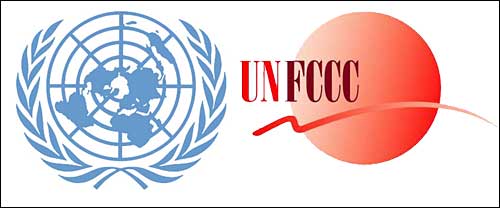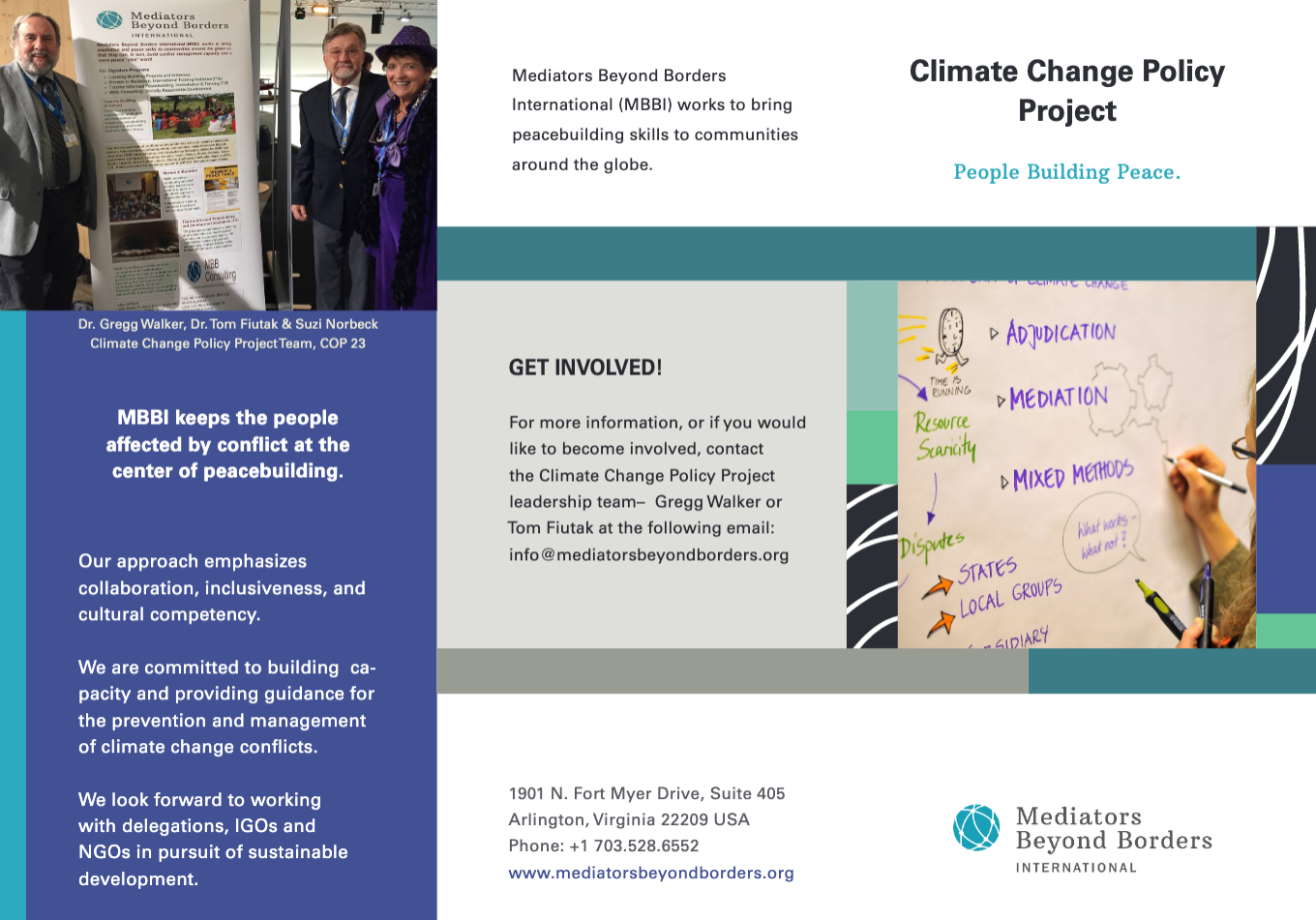Climate Change Project

Our mission: Strengthening human capacity to build peace and constructively manage conflict at all levels, local to global, related to the climate crisis.
Click here to read and download the Goals Document of MBBI's Climate Change Project.
Team Leaders:
- Yasmeen Kennedy
- Gregg Walker
- Joe Siegel
COP 27 Handout
Engage and read through the handout here: MBBI COP 27 Handout.
Project Updates
Partnership with Adaptation Without Borders
MBBI has recently signed an MOU with Adaptation Without Borders Initiative. AWBI is a new global partnership, created to respond to the emerging global challenge of transboundary climate risks. Adopting an innovative and solutions-focused approach to managing transboundary climate risks, AWBI will generate tools and tactics to identify, assess and track climate impacts – within and across the international pathways via which they flow. They are also planning on producing implementable policy recommendations and adaptation options to mitigate or manage their effects.
Project History
 Since 2009, the Climate Change Project (CCP) has been an Observer Project of the United Nations Framework Convention on Climate Change (UNFCCC) and an Official Observer Organization for Talks and Conference of the Parties (COP). MBBI members have attended UNFCCC sessions in Bangkok, Barcelona, Bonn, Cancun, Copenhagen, Durban, Doha, Marrakech, Panama, Paris, and Warsaw promoting sustainable conflict resolution capacity and advocating for the inclusion of mediation into legally binding instruments. The team worked to get conflict management and mediation on the agendas of Post-Paris committees and negotiation groups, such as the Adaptation Committee and the Ad-hoc Working Group on the Paris Agreement (APA). MBBI-CCP proposed that the following text be included in a legally binding instrument under the United Nations Framework Convention on Climate Change:
Since 2009, the Climate Change Project (CCP) has been an Observer Project of the United Nations Framework Convention on Climate Change (UNFCCC) and an Official Observer Organization for Talks and Conference of the Parties (COP). MBBI members have attended UNFCCC sessions in Bangkok, Barcelona, Bonn, Cancun, Copenhagen, Durban, Doha, Marrakech, Panama, Paris, and Warsaw promoting sustainable conflict resolution capacity and advocating for the inclusion of mediation into legally binding instruments. The team worked to get conflict management and mediation on the agendas of Post-Paris committees and negotiation groups, such as the Adaptation Committee and the Ad-hoc Working Group on the Paris Agreement (APA). MBBI-CCP proposed that the following text be included in a legally binding instrument under the United Nations Framework Convention on Climate Change:
Recognizing that conflicts and disputes are an inevitable and adverse effect of climate change, the Parties are encouraged to use mediation, conciliation, arbitration, and actions before the International Court of Justice to settle their climate change conflicts and disputes.
MBBI-CCP further proposed (under Article 6 of the Convention, Education, Training and Public Awareness) that the parties should promote and facilitate — at the national, sub-regional, regional and local levels — the development and implementation of educational and public awareness programs for mediation, conflict management, and informal problem solving to address climate change and its effects.
Delegates from different countries with whom the team spoke all supported the idea of including mediation and facilitation language in the Paris agreement. When the process came down to the final drafts, however, the motion to include that text did not happen. The Agreement does include the idea of “facilitation” so perhaps the door is not completely shut.
Project Impact
ADVOCACY & SUPPORT
- Raised knowledge and skills of participants from four continents.
- Facilitated the development of National Action and Mitigation plans.
MBBI members provide workshops, consultations and facilitation support for member states and COP participants. These are focused on environmental mediation and constructive conflict management processes.
FACILITATION & PARTNERSHIP
- Supported the development of collaborative action plans among members states.
- Developed case studies and training materials
MBBI members with expertise in environmental issues and collaborative processes, partner with member states like Kenya, Ireland and Ghana; they collaborate with networks like AWBI to design collaborative processes across the African Continent and in the Hindukush Region.
Suzi Norbeck, Ambassadors, and Gregg Walker, Co-Chair of MBBI's CCP at COP23
Tom Fiutak, Co-Chair of MBBI's CCP at COP23
Ken Cloke, Mediators Beyond Borders International (MBBI) at COP15

